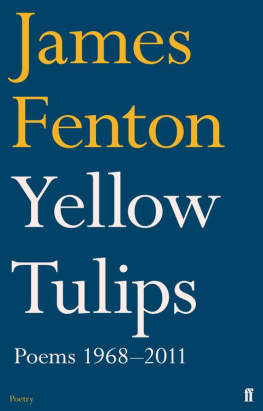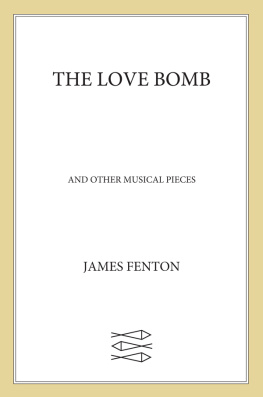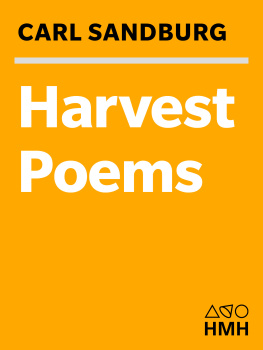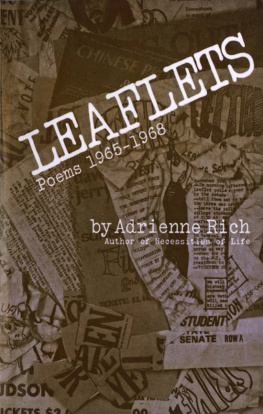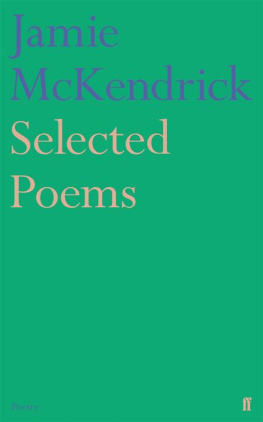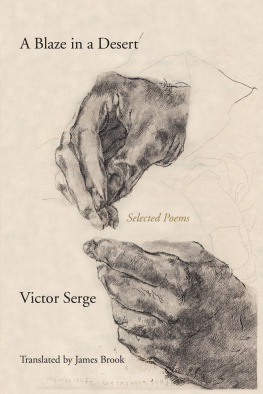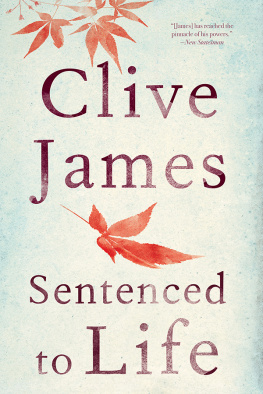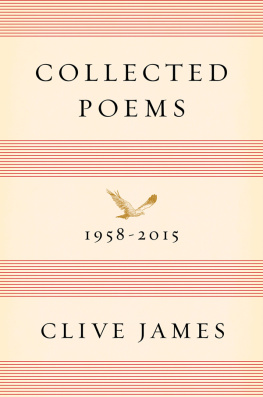This is the wind, the wind in a field of corn. Great crowds are fleeing from a major disaster Down the long valleys, the green swaying wadis, Down through the beautiful catastrophe of wind. Families, tribes, nations and their livestock Have heard something, seen something. An expectation Or misunderstanding has swept over the hilltop Bending the ear of the hedgerow with stories of fire and sword. I saw a thousand years pass in two seconds. Land was lost, languages rose and divided.
This lord went east and found safety. His brother sought Africa and a dish of aloes. Centuries, minutes later, one might ask How the hilt of a sword wandered so far from the smithy. And somewhere they will sing: Like chaff we were borne In the wind. This is the wind in a field of corn. J. G. G.
A.) For as at a great distance of place, that which wee look at, appears dimme, and without distinction of the smaller parts; and as Voyces grow weak, and inarticulate: so also after great distance of time, our imagination of the Past is weak; and wee lose (for example) of Cities wee have seen, many particular Streets; and of Actions, many particular Circumstances. This decaying sense, when wee would express the thing it self, (I mean fancy it selfe,) wee call Imagination, as I said before: But when we would express the decay, and signifie that the Sense is fading, old, and past, it is called Memory. So that Imagination and Memory are but one thing Hobbes, Leviathan It is not what they built. It is what they knocked down. It is not the houses. It is the spaces between the houses.
It is not the streets that exist. It is the streets that no longer exist. It is not your memories which haunt you. It is not what you have written down. It is what you have forgotten, what you must forget. What you must go on forgetting all your life.
And with any luck oblivion should discover a ritual. You will find out that you are not alone in the enterprise. Yesterday the very furniture seemed to reproach you. Today you take your place in the Widows Shuttle. The bus is waiting at the southern gate To take you to the city of your ancestors Which stands on the hill opposite, with gleaming pediments, As vivid as this charming square, your home. Are you shy? You should be.
It is almost like a wedding, The way you clasp your flowers and give a little tug at your veil. Oh, The hideous bridesmaids, it is natural that you should resent them Just a little, on this first day. But that will pass, and the cemetery is not far. Here comes the driver, flicking a toothpick into the gutter, His tongue still searching between his teeth. See, he has not noticed you. No one has noticed you.
It will pass, young lady, it will pass. How comforting it is, once or twice a year, To get together and forget the old times. As on those special days, ladies and gentlemen, When the boiled shirts gather at the graveside And a leering waistcoat approaches the rostrum. It is like a solemn pact between the survivors. The mayor has signed it on behalf of the freemasonry. The priest has sealed it on behalf of all the rest.
Nothing more need be said, and it is better that way The better for the widow, that she should not live in fear of surprise, The better for the young man, that he should move at liberty between the armchairs, The better that these bent figures who flutter among the graves Tending the night-lights and replacing the chrysanthemums Are not ghosts, That they shall go home. The bus is waiting, and on the upper terraces The workmen are dismantling the houses of the dead. But when so many had died, so many and at such speed, There were no cities waiting for the victims. They unscrewed the name-plates from the shattered doorways And carried them away with the coffins. So the squares and parks were filled with the eloquence of young cemeteries: The smell of fresh earth, the improvised crosses And all the impossible directions in brass and enamel. Doctor Gliedschirm, skin specialist, surgeries 1416 hours or by appointment.
Professor Sargnagel was buried with four degrees, two associate memberships And instructions to tradesmen to use the back entrance. Your uncles grave informed you that he lived on the third floor, left. You were asked please to ring, and he would come down in the lift To which one needed a key Would come down, would ever come down With a smile like thin gruel, and never too much to say. How he shrank through the years. How you towered over him in the narrow cage. How he shrinks now But come.
Grief must have its term? Guilt too, then. And it seems there is no limit to the resourcefulness of recollection. So that a man might say and think: When the world was at its darkest, When the black wings passed over the rooftops (And who can divine His purposes?) even then There was always, always a fire in this hearth. You see this cupboard? A priest-hole! And in that lumber-room whole generations have been housed and fed. Oh, if I were to begin, if I were to begin to tell you The half, the quarter, a mere smattering of what we went through! His wife nods, and a smile, Like a breeze with enough strength to carry one dry leaf Over two pavingstones, passes from chair to chair. Even the enquirer is charmed.
He forgets to pursue the point. It is not what he wants to know. It is what he wants not to know. It is not what they say. It is what they do not say.

